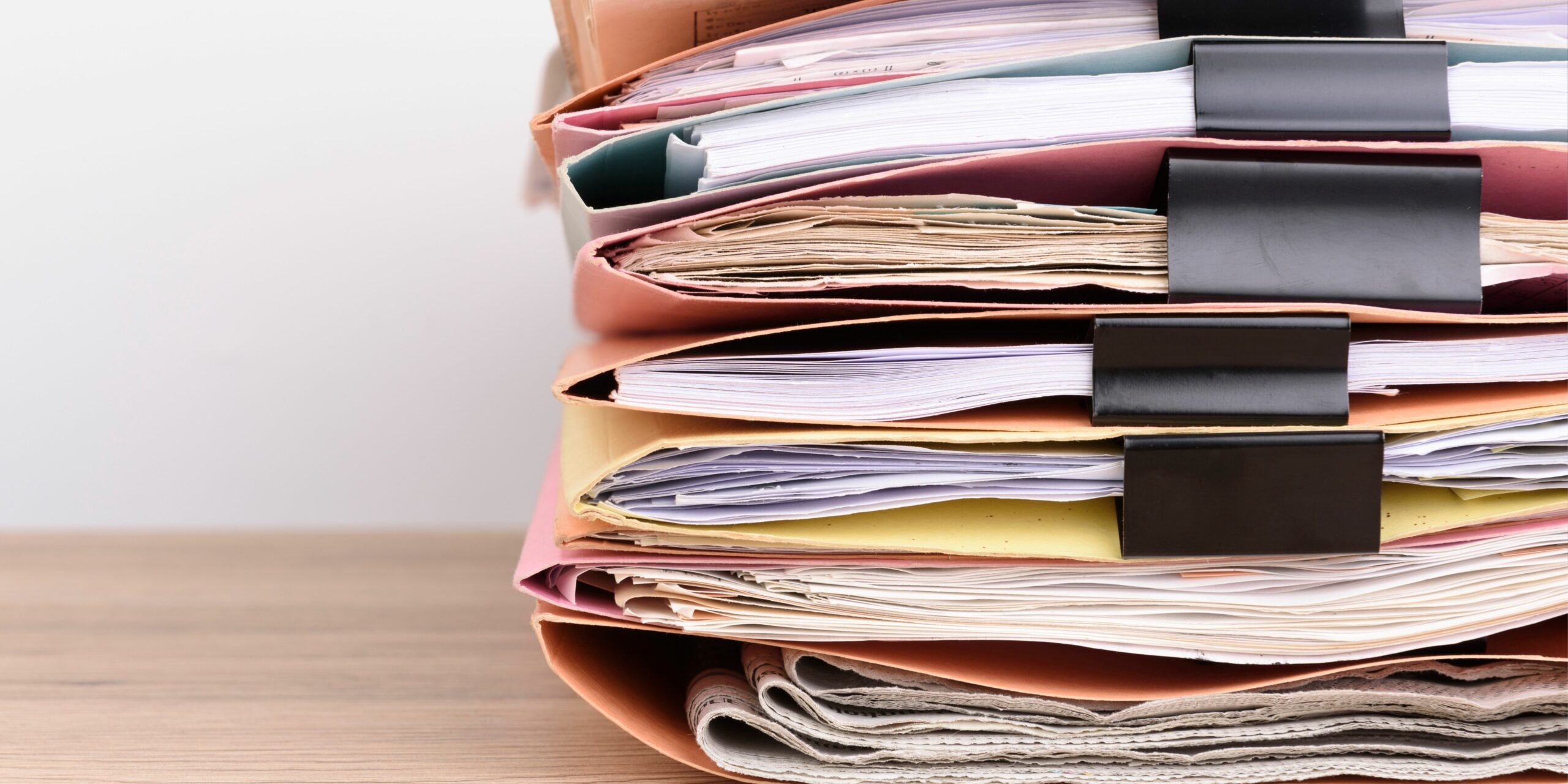In this day and age, it’s not uncommon to become inundated with bank stubs, receipts from purchases and other documents or scraps of paper of varying importance. While we cannot (and should not) hold on to everything, understanding which documents should be kept secure and safe and which documents can be replaced or are unnecessary can help you maintain a tidy household – and prevent future legal, financial and personal complications.
The most important documents
It’s important to understand that legal documents and documents that prove asset ownership should be kept in a safe and secure place indefinitely. Here are some of the most important documents you should be especially careful with:
- Estate planning documents. A copy of your Last Will and Ttestament, Living Trust, Advance Medical Directives including your Health Care Power of Attorney and Living Will , Financial Power of Attorney, Pre-need Guardian Declaration and Memorial Instructions.
- Marriage and other legal documents. Pre or Post-nuptial Agreements, Certificates of Marriage, Final Judgments of Dissolution of Marriage and Property Settlement Agreements.
- Life insurance. Original policies of life insurance and any change of ownership or beneficiary designations. Annual illustrations are also helpful.
- Identification documents. This includes birth certificates, adoption records, social security cards and passports. These documents can be difficult and expensive to replace, so it’s best not to lose them.
- Education documents. Diplomas, certifications, transcripts and other documents that prove your education.
- Paid debts. Any document that shows you completed payment of a debt including Release of Lien or Satisfaction of Mortgage showing the current balance is $0 should be kept in case issues arise with the creditor in the future.
While these are the most important documents to consider, not all documents need to be safeguarded forever. Here are some common documents and recommendations on how long you should retain them:
- Income tax returns. Hold on to your returns, as well as the information you used to prepare your returns, for up to seven years.
- Home repair. It’s recommended you guard paid bills from home repairs for ten years to protect yourself from disputes or litigation that could arise in the future.
- Medical records. The recommended time to safeguard medical documents varies. Some say one year, while others recommend five years. However, if you’ve had a major illness or accident you may want to hold on to the records indefinitely.
- Mortgage documents. Safeguard your mortgage documents for the duration of the mortgage. Then, keep the Satisfaction of Mortgage.
Where to keep my documents?
For most documents, a safe but accessible place, in your home or office should work just fine. However, in the modern age, it’s also common to store documents by scanning them and saving them digitally to a cloud storage provider, like Dropbox or Box. If you go this route, we suggest you back-up your documents in more than one place, and in at least one place that’s off-line, like a flash drive or external hard drive.
Contact the Law Offices of Hoyt & Bryan, LLC
If you are located in Central Florida and need help with any issues related to wills, trusts, estate planning or elder law, we can help. The Law Offices of Hoyt & Bryan has over 50 years of combined legal experience in the field. Give us a call today at 407-977-8080 or contact us online.





